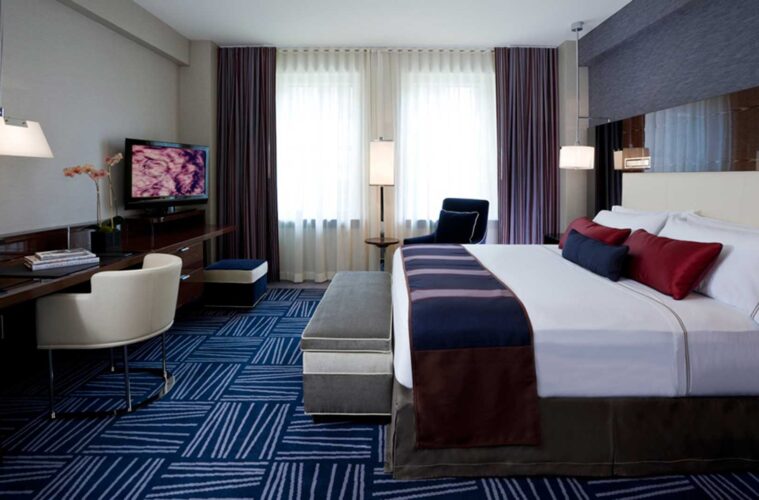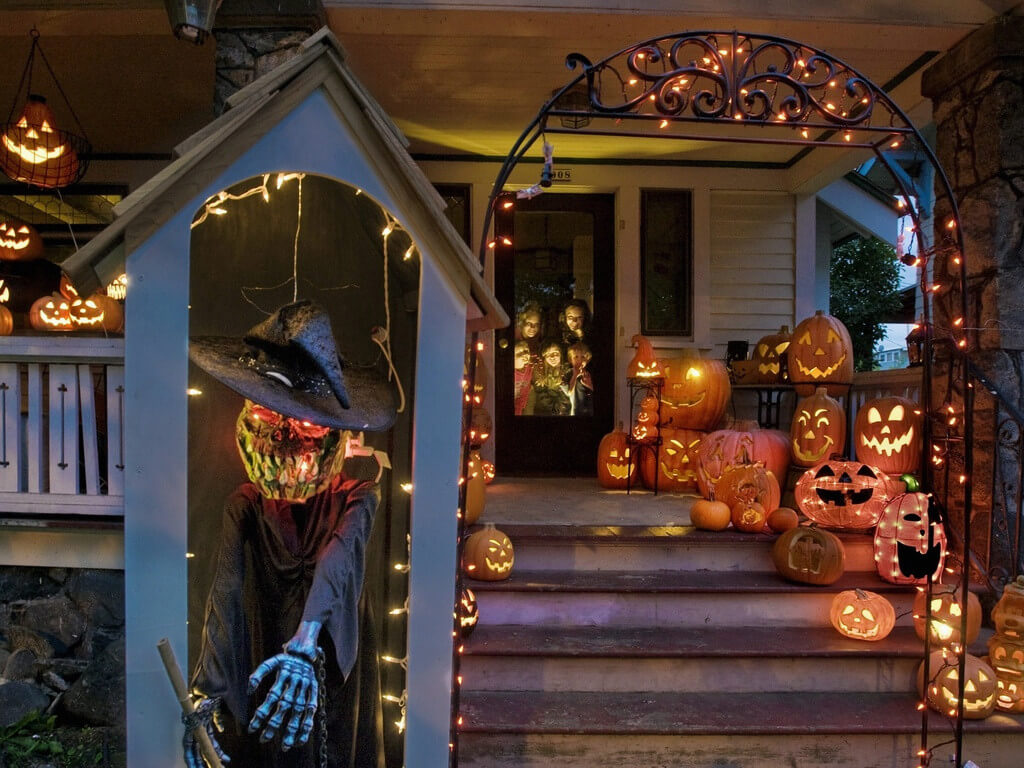One of the best aspects of starting your own hotel is the freedom you have to create an experience that your guests will enjoy. But with so many options to consider, finding your niche might be more difficult than you first imagined.
Fortunately, this article should give you some inspiration to help you on your way.
What makes a hotel?
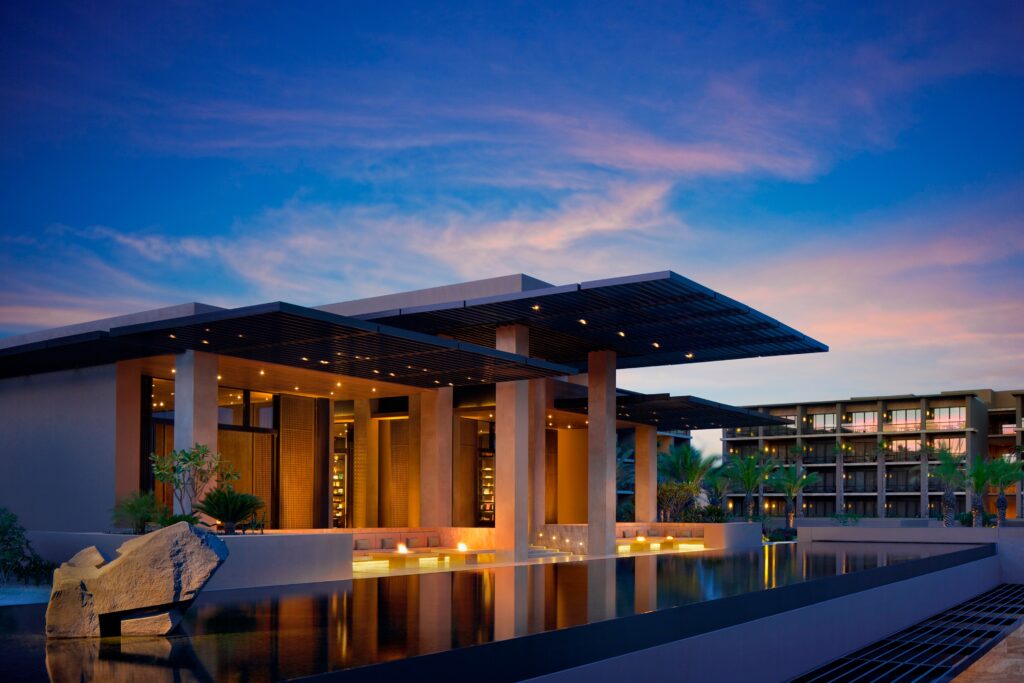
source: pinterest.com
A hotel needs to provide a few basic features and functions as standard, both for the benefit of staff and paying customers.
First, and most importantly, it needs to provide accommodation for the guests. This can be standard bedrooms and bathrooms or more extensive accommodation with living areas and kitchens.
Some hotels also incorporate features to enrich the customer experience, whether that be restaurants, bars, gyms, pools or anything else that offers people more during their stay.
Hospitality staff need dedicated space to function and carry out their work effectively, so catering facilities, staff rooms and receptions should all be considered in the design phase.
Types of hotel
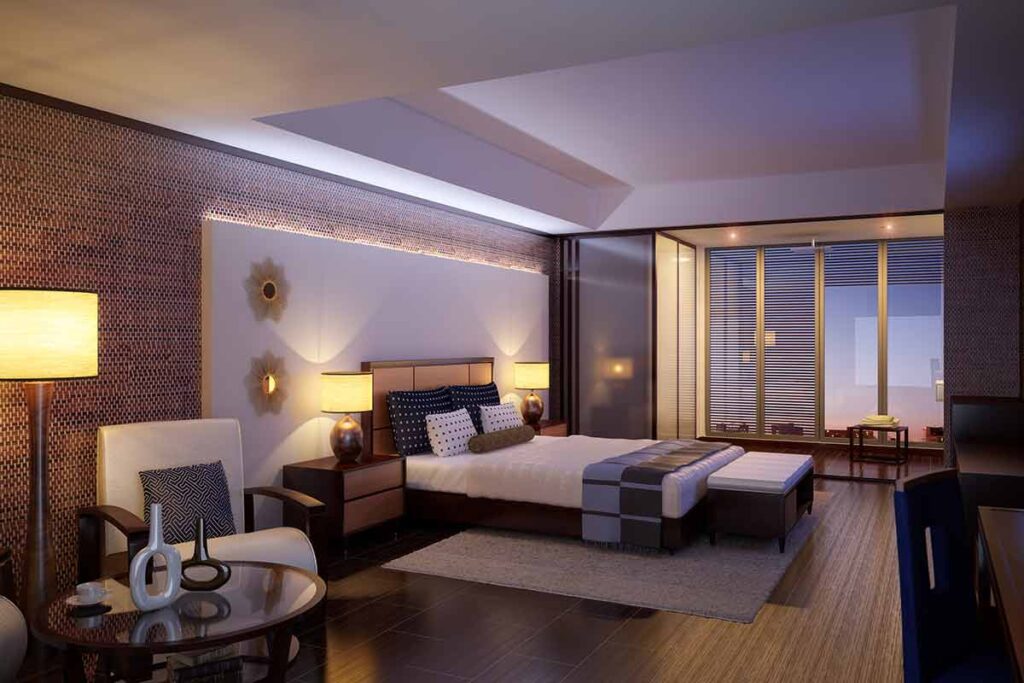
source: pinterest.com
Hotels come in many shapes, sizes and styles, each offering unique experiences for guests. There are far too many types to include them all in this article!
If you’re considering how you want to set up your establishment, here’s a brief guide to a few of the main types for some inspiration:
Chain hotels – establishments that are affiliated with certain brands, meaning they have very recognisable designs and consistent branding. Common examples include Holiday Inn, Premier Inn and Hilton. These can be owned by the brand themselves or by franchise owners who use the brand standards. Independent hotels are the opposite, whereby they have their own ownership, design and strategy.
Boutique hotels – usually quirky and unique hotels that follow particular themes and influences. They can be chain-owned or independent, but they are typically smaller and provide a more tailored experience for their guests.
Resort hotels – accommodation that’s part of a more comprehensive holiday resort. These play a role in providing the full holiday experience to customers with convenience at the heart of everything – usually including restaurants, pools, entertainment facilities and shops.
Apart-hotel – a blend of apartments and hotels for extended stays and added functionality. These commonly offer kitchen and lounge facilities on top of bathrooms and bedrooms. Business travellers may use apart-hotels for extended business trips.
Hostel – at the more affordable end of the scale, hostels aim to provide backpackers and nomads with accommodation at a lower price – sometimes sacrificing privacy and convenience in certain aspects. You can have a lot of fun running a hostel if you enjoy meeting people and aren’t afraid of quick turnarounds.
Things to consider when starting up
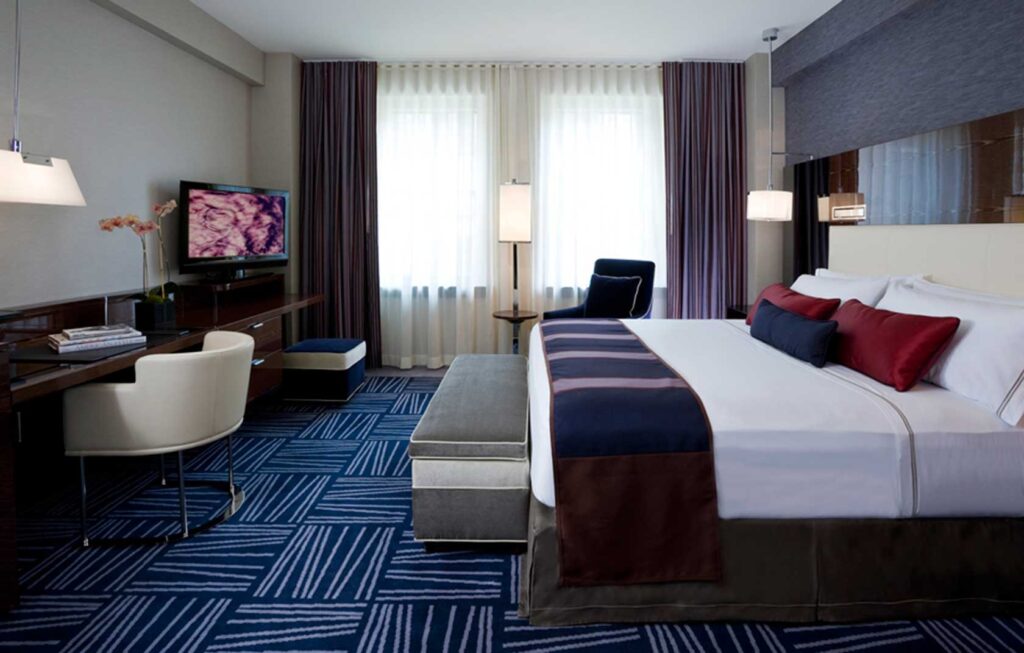
source: pinterest.com
There are many things to keep in mind when starting a hotel – you can take charge of it all yourself or consult specialists to help you out in certain areas.
Location is vital because you need to be accessible and based somewhere people need accommodation. Proximity to local attractions, business locations or infrastructure is always a good strategy because there is likely to be steady demand.
You might have to consider whether you’re going to buy a hotel or if you’re building one from the ground up. There are pros and cons to each, but you will have an idea about what you can afford to take on.
Don’t forget the importance of finance and precautionary measures such as insurance for your hotel. If your finances aren’t kept in check, you could be vulnerable to economic troubles and hardship from the start.
Dealing with competitors is going to be a challenge, but you can compete effectively by optimising your marketing strategy and by providing excellent service to any guests that stay – glowing reviews will entice more people to stay with you.

